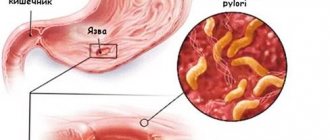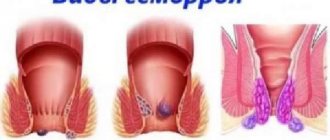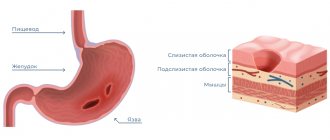Symptoms: discomfort after eating, heaviness in the abdomen, heaviness after eating, abdominal pain, abdominal pain, stomach pain, epigastric pain, burning in the abdomen, burning in the stomach, bloating, intestinal upset, bloating, intestinal discomfort , frequent bowel movements, frequent urge to stool, indigestion, diarrhea (diarrhea), constipation, stool retention, abdominal distension, flatulence, gases in the intestines, heartburn, belching after eating, food intolerance, bitter taste in the mouth, dry mouth.
Disorders of the gastrointestinal tract, or digestive problems, are manifested by various symptoms: constipation, diarrhea, flatulence, pain, stinging, a burning sensation or heaviness in the abdomen, discomfort in the intestines, as well as heartburn, belching and unpleasant sensations in the mouth (dryness, bitterness). Quite often, symptoms may worsen immediately after eating. Disorders of the gastrointestinal tract may be accompanied by deterioration of appetite, general weakness and irritability.
Defecation with such disorders always brings noticeable discomfort: starting with pain in the abdomen and sensations of bloating, it occurs either too slowly and difficultly (with constipation), or, conversely, too often, and the stool has a liquid consistency (with diarrhea). In both cases, increased gas formation (flatulence) is observed.
Gastrointestinal disorders can be caused by disturbances in the functioning of the vegetative centers responsible for the functioning of the digestive organs. In such cases, diets and standard drug treatment for gastritis, dysbiosis and other diseases of the digestive system remain ineffective. Gastroenterological studies do not reveal serious problems, and the patient continues to suffer from the inability to eat and go to the toilet calmly. In this case, the patient is recommended to check the autonomic nervous system of the body. When the functioning of the affected vegetative centers is restored, the digestive process normalizes independently.
Why there is a feeling of heaviness and fullness in the stomach
A feeling of heaviness and fullness in the stomach occurs when there are disturbances in the functioning of the digestive system. These symptoms indicate poor nutrition, for example, starvation, overeating, poor quality food. If the discomfort does not go away or recurs, then most likely a pathology occurs in the body.
Causes of feeling of heaviness and fullness in the stomach:
- toxicosis during pregnancy;
- diseases of the digestive system;
- metabolic disorders, such as diabetes;
- stressful situations;
- allergic reaction to food;
- alcohol abuse, smoking;
- lactose intolerance;
- parasite infection.
Any of these reasons causes discomfort and pain in the digestive organs.
Unpleasant feeling in the morning
If heaviness in the stomach appears in the morning. Such hunger pains most often appear at 5 o'clock in the morning. If symptoms appear regularly, then consulting a doctor should not be delayed.
Heaviness in the morning appears with the following diseases:
- stomach and duodenal ulcers;
- gastritis.
A glass of milk or clean water will help relieve discomfort.
How to deal with heaviness in the stomach?
A balanced diet helps to avoid unpleasant symptoms, including heaviness in the abdomen, since there is no unnecessary stress on the digestive system.
Proper nutrition helps ensure a balanced supply of enzymes in the body and maintain healthy digestion. Try to diversify your diet with healthy foods: nuts, fruits, grains. You should not subject food to long-term heat treatment: prolonged cooking, frying or stewing will lead to the destruction of beneficial substances. Therefore, you need to include a certain proportion of fresh vegetables and fruits in your daily menu.
A balanced diet is important for improving the digestion process, but it is not always possible to stick to it. Either a colleague’s birthday at work, or a feast with friends – and it’s simply impossible to refuse a tasty treat! Excess food can often lead to a feeling of heaviness in the stomach and discomfort. In this case, the body may need support to cope with unpleasant sensations. What should this support be like?
Diagnostic methods
If discomfort or pain becomes periodic or lasts for several days, then you should consult a doctor. A gastroenterologist deals with these issues.
The following diagnostic methods are used to identify pathologies:
- gastric juice studies;
- stool, urine, blood tests;
- Ultrasound;
- gastroscopy;
- fluoroscopy.
Thanks to these diagnostic methods, a specialist will identify the causes of pain in the stomach. After this, the gastroenterologist will select treatment methods, diet, and medications to effectively eliminate discomfort in the digestive system.
Irritable bowel syndrome (IBS)
Avdyakov Igor Vasilievich
Therapist, Gastroenterologist
April 23, 2021
What it is?
Irritable bowel syndrome belongs to a class of functional disorders of the gastrointestinal tract. This means that modern examination methods cannot identify pathologies of the digestive system that could cause symptoms of the disease. There are no obvious causes of the problem, and symptoms that significantly impair the quality of life sometimes persist for years. People suffering from IBS are afraid to attend public events, travel, and cannot successfully cope with their work responsibilities. Rare cases have been described in which irritable bowel syndrome in women led to unnecessary surgical interventions, in particular hysterectomy (removal of the uterus and ovaries).
The disease is common, affecting approximately 15-20% of the adult population of the Earth (about 22 million), most of them are women. Approximately two-thirds of IBS patients do not seek medical help, resorting to taking medications for symptomatic treatment of the manifestations of the disease (constipation, diarrhea, etc.).
Treatment of CPK is complicated by the fact that there is no clearly established cause for the development of this condition. Clinical studies suggest that the basis is a dysregulation of the intestines under the influence of several factors: stress, changes in the composition of the intestinal microflora, eating disorders. The trigger may be poisoning or intestinal infections, but not in all cases.
How does IBS manifest?
Irritable bowel syndrome can be suspected based on the following signs:
- sudden onset and periodically recurring pain and discomfort in the abdomen (around the navel or lower abdomen) after eating, usually disappearing after bowel movements or passing gas;
- diarrhea after eating, usually in the morning and early afternoon;
- constipation;
- flatulence;
- feeling of incomplete bowel movement after visiting the toilet;
- belching air;
- nausea;
- feeling of heaviness and fullness in the stomach.
What is characteristic: often these unpleasant symptoms arise from excitement or after it, as a result of prolonged physical and nervous stress. Often, intestinal disorders are accompanied by headache, a feeling of a lump in the throat, insomnia, a feeling of lack of air, frequent urination, tinnitus, a feeling of weakness, and dry mouth.
How to confirm the diagnosis of IBS?
Irritable bowel syndrome is a diagnosis of exclusion. Symptoms characteristic of it may be a manifestation of other diseases of the gastrointestinal tract. Therefore, when you consult a doctor, tests and examinations are prescribed that help identify or exclude these diseases (colorectal cancer, inflammatory bowel disease, colitis, polyposis, chronic pancreatitis, intestinal tuberculosis, etc.). If all other reasons for complaints are excluded, the doctor may settle on the diagnosis of “functional disease”.
The following are symptoms that cast doubt on the diagnosis of IBS and require additional examination:
- weight loss;
- onset of the disease in old age;
- persistence of symptoms at night (during sleep);
- constant intense abdominal pain as the only and leading symptom;
- fever (high temperature);
- detection of pathology of the abdominal organs during examination;
- deviations from the norm in test results;
How can a doctor help a patient with IBS?
If you experience abdominal pain and abnormal bowel movements, you should not postpone a visit to the doctor, because other diseases may be hidden under the mask of IBS. It is necessary to select an individual examination and treatment plan, which should be comprehensive, consisting of drug therapy, diet and measures aimed at improving the functions of the central nervous system.
There is no single drug that can calm a raging intestine, so each patient has his own treatment regimen: for abdominal pain, drugs that weaken the motor activity of the intestine can be prescribed, for diarrhea - fixing drugs, for constipation - laxatives, for bloating - medications, reducing gas formation.
It is recommended to avoid overwork and stressful situations. In many cases, the help of a psychologist or psychotherapist is effective. Sometimes, in addition to the main treatment, the doctor may prescribe sedatives.
What to do if you are diagnosed with irritable bowel syndrome?
Firstly, we must remember that the life prognosis for this disease is favorable. Irritable bowel syndrome does not lead to the development of bowel cancer or diseases such as ulcerative colitis or Crohn's disease.
Secondly, it is advisable to be under the supervision of a doctor whom you completely trust and can tell about the most minor changes in your well-being and the reasons that, in your opinion, caused them.
Thirdly, you need to pay attention to how you eat.
Nutrition and diet for irritable bowel syndrome.
Nutrition is of great importance in the treatment of this disease. The diet should be dominated by foods containing dietary fiber. It is completely unacceptable to eat 1-2 times a day and in large quantities. This diet will undoubtedly cause abdominal pain, bloating and bowel dysfunction. Eating more than 4-5 times a day and in small portions, on the contrary, makes you feel better.
It is well known that in some patients a certain set of foods leads to an increase in symptoms, so it is advisable to keep a so-called “food diary” in order to identify foods that may cause a worsening of the condition. The diary records the foods consumed during the day and any unpleasant sensations that arose. For example, coffee - twice unformed stool with mucus, onions - bloating, excessive gas formation.
Examples of foods related to gas formation in the intestines:
- products that do not increase gas formation: meat, poultry, fish; vegetables (lettuce, zucchini, broccoli, peppers, cauliflower, tomatoes, olives, etc.); products containing mainly carbohydrates (rice, corn flakes, popcorn, wholemeal crackers, etc.); various products (eggs, dark chocolate, gelatin, popsicles)
- moderately gas-forming foods: confectionery, potatoes, eggplants, citrus fruits, apples
- excessively gas-forming foods: vegetables (onions, beans, carrots, celery, Brussels sprouts, sprouted wheat germ, etc.); fruits (dried fruits, raisins, grapes, bananas, apricots, plum juice, etc.)
What is the prognosis for irritable bowel syndrome?
Today, if you consult a doctor and follow the recommendations, you can achieve a lasting improvement in your condition. But the problem of irritable bowel syndrome is not solved overnight. Even with the right treatment and lifestyle, attacks may return from time to time, such is the nature of this disorder.
In order to live a full life, you must try to avoid overwork, stressful situations, and eating foods that lead to symptoms of the disease; and if you feel worse or if new symptoms appear, visit your doctor.
Treatment of heaviness in the stomach
If stomach discomfort begins to appear more often, then you need to seriously think about treatment. To do this, contact a specialist, undergo diagnostics, and understand the causes of the ailment. The doctor will select the necessary ways to restore health.
Ways to improve the functioning of the digestive system:
- adjust your diet: establish regularity of food intake, avoid overeating, starvation, improve the quality of foods consumed;
- play sports, do exercises, move more;
- drug therapy;
- use of traditional methods of treatment.
Each of these methods is important for improving the functioning of the digestive system.
Drugs
If there is a feeling of heaviness and fullness in the stomach, medications are used, which should be used after determining the causes of the ailment.
Cases from practice
Male, 28 years old, supervisor.
In 2015, a young man came to us with complaints of digestive problems. For more than a year now he has been on a strict diet: porridge and broth. I could not eat fried and fatty foods, flour products, as bloating, a feeling of “cola” in the stomach, seething, and increased gas formation immediately appeared. These sensations were most often accompanied by diarrhea, less often by constipation. The symptoms were accompanied by a feeling of bitterness and dry mouth. The tongue was constantly covered with a white coating.
The symptoms were accompanied by general weakness and a constant feeling of anxiety due to the fear of getting into another stressful situation: being on the street, in a traffic jam or at work without close access to a toilet.
The man was examined by a gastroenterologist. No stomach problems were identified. The doctor first diagnosed irritable bowel syndrome, and later dysbiosis. The patient tried to be treated with medications and probiotics, but nothing helped.
When the patient contacted us, a thermal imaging study showed quite serious changes in the paravertebral vegetative nodes at the thoracic level and in the solar plexus nodes, caused by overstrain of these centers. Only in a calm state was normal functioning of the gastrointestinal tract possible. At the slightest load, the autonomic nervous system could no longer cope with the digestive functions of the body.
After the first course of treatment, the patient felt much better and was able to return to work without fear of encountering old problems again.
Male, 47 years old, worker.
From the anamnesis it is known that the first symptoms of the present disease appeared in the patient 17 years ago, a year after he was in a car accident (grade 2 concussion). Abdominal pain began after eating.
The local physician referred for gastroscopy (conclusion: superficial catarrhal gastritis). Drug therapy was prescribed (coatings, enzymes, diet). However, no improvements were observed within six months. Repeated gastroscopy showed normal gastric mucosa. The diagnosis of gastritis was removed, another one was made - intestinal dysbiosis, and probiotics were prescribed.
Over the following years, the condition gradually worsened, with heartburn, frequent (up to eight times a day) bowel movements, a burning sensation in the abdomen after eating, which were replaced by severe pain, flatulence (“the stomach inflates like a drum”).
A man contacted the Clinical Center for Autonomic Neurology in January 2010 with complaints of a burning sensation in the abdomen, severe flatulence, indigestion, insomnia, anxiety, severe weight loss (due to intolerance to many foods, he followed a strict diet, eating once a day).
All symptoms of the disease disappeared two months after the first course of therapy. A repeat course was carried out at the patient’s request to “consolidate the positive results.” To this day he feels completely healthy.
Woman, 30 years old, housewife.
She turned to us for help two years after the onset of the disease, in 2008.
Complaints of a burning sensation in the lower part of the sternum and epigastric region, “as if it were hot there.” These sensations appeared to her sporadically (several times a day) and lasted from 10 to 30 minutes.
Constant general weakness, chills, nausea, trembling in the body. In order to get rid of the unpleasant sensations, she needed to lie down for at least 15 minutes. After rest, the discomfort went away.
These symptoms indicated “interest in the solar plexus nodes,” which was confirmed by a computer thermal imaging study.
The woman underwent a set of physiotherapeutic procedures aimed at normalizing the functioning of the solar plexus. To date, she has no health complaints.
Male, 30 years old, driver.
At the time of contacting the clinic, the patient’s autonomic neurology center was not working due to existing complaints. The main complaint was frequent urge to defecate, sudden and very painful intestinal spasms. Loose stools were observed at least ten to fifteen times a day...
A driver by profession, the patient was forced to change jobs frequently because he could not perform his duties. “Every half hour I ran and looked for any gateway.” For the same reason, I couldn’t stand long trips on public transport.
Despite a strict diet and even weeks of fasting, the symptoms did not go away. And any meal caused severe stomach turmoil and colic.
At the Clinical Center for Autonomic Neurology, the patient underwent two courses of therapy. Positive dynamics were noted already in the second week after the first course. And six months later, all symptoms of gastrointestinal disorders disappeared completely.
Therapeutic diet
Nutritionists recommend developing a menu for the week, this will make it easier to give up unhealthy foods and your body will receive the nutrition it needs on time.
| day of the week | meal | dishes |
| Monday |
|
|
| Tuesday |
|
|
| Wednesday |
|
|
| Thursday |
|
|
| Friday |
|
|
| Saturday |
|
|
| Sunday |
|
|
The menu is a recommendation only. After a specialist has determined the causes of the ailment, it is necessary to obtain recommendations from him on the necessary diet.








